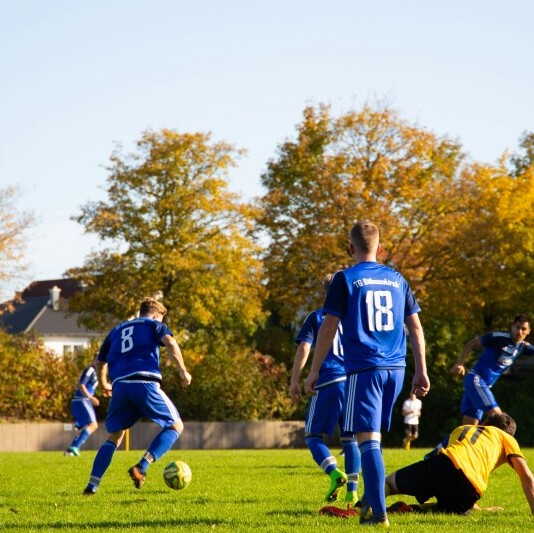
Soccer isn’t just about what’s happening with your feet—it’s as much about what goes on in your head. That’s where game awareness comes into play. Game awareness puts you in the right place at the right time, seeing things a split second before anyone else. It’s knowing your next move before the ball even comes your way.
You might think playing soccer is all about skills and techniques, but let’s not forget the role of situational awareness. It’s that mental edge that separates the good players from the great ones. When you watch legends on the field, you’re watching their brains at work as much as their feet. Understanding game awareness means understanding how these players anticipate the action.
At the heart of game awareness are four major elements: anticipation, recognition, decision-making, and execution. Anticipation is about predicting what might happen next. Do you see a break in the defense? Maybe you can start running before the ball even gets passed. Recognition involves spotting patterns on the field. Is your teammate about to make a run? Decide quickly if you should pass or hold.
Decision-making on the field often happens in a blink, yet it requires processing a ton of information—who’s open, who’s closing in, where the defenders are, and so on. Finally, execution puts your decision into action. You might anticipate and recognize correctly, make a good decision, but then falter in the execution; that part ties everything together. All these skills shape your game awareness and make you more effective on the pitch.
Mastering Spatial Perception: Seeing and Understanding the Field
Those who master spatial perception on the soccer field have a knack for seeing the game like a chessboard, always a step ahead. It’s about understanding player positions and movements in real-time to make better decisions with and without the ball.
Getting a feel for where everyone is—teammates and opponents alike—requires constant visual scanning. You don’t just focus on the ball; check the positions around, notice gaps, spot your teammates’ runs. Take a mental snapshot of the field every few seconds. It’s all about having that eagle eye.
When you watch a top midfielder, you’ll notice they’re always looking up to keep track of the field’s tapestry. They know that reading the game is crucial. This might be as simple as recognizing when defenders are shifting or anticipating an opponent’s pass before it happens. It gives you the edge to react before the situation unfolds.
Training yourself to see the whole picture means working on your peripheral vision and practicing drills that make you move with your head up. This helps you piece together how each player’s movement affects the game’s flow.
It’s like building a strong instinct—your body just senses where it should be. Regularly integrating this awareness into your game plan will help you stay organized, make smarter plays, and maintain strategic positioning against live competition.
Embracing Tactical Intelligence: Strategic Thinking on the Field
Beyond the physical aspect, soccer is a strategic game. Tactical intelligence involves understanding both your team’s and the opponent’s formation and tactics. Grasping these nuances translates into being able to adapt quickly to shifts during the game.
Think of it as developing a sense of the game’s rhythm. If you can recognize when your team needs to press for the ball or fall back into a defensive shape, you’re already a step ahead. This awareness helps you conserve energy and maximize impact.
To master this, stay curious about tactics. Whether it’s pressing, counterattacking, or zoning, understanding these strategies lets you see the bigger picture and contributes to your decision-making process.
Feedback plays a huge role here. Regularly discuss the game with coaches or teammates to get insights into your tactical responses. This is about learning to adjust based on real-time feedback, helping you to act instead of react.
By constantly refining your strategic thinking, you make smarter choices in real-time, supporting your team effectively. Observing professional games and analyzing their tactical play also adds a practical layer to your knowledge, enriching your in-game awareness.
Building Mental Resilience: Enhancing Focus and Concentration
The ability to stay focused in the heat of a soccer match separates a good player from a standout one. Mental resilience is essential, especially when the pressure is on, allowing you to maintain composure and awareness throughout the game.
Maintaining focus under stress starts with building mental stamina. Just like physical strength, mental strength can grow with practice. Simple routines like visualization exercises before a game or mindfulness practices during downtime keep your mind sharp and present.
Mindfulness is not just about relaxation; it teaches you to filter out distractions and focus on what truly matters on the pitch. This skill ensures that even under crowd pressure, you’re laser-focused on the task at hand—playing your best game.
Developing cognitive agility is core to improving concentration. Engage in exercises that mimic game situations, like quick decision-making drills or memory games. These practices help develop a fast and resilient mindset that can adapt to the dynamic nature of soccer.
Ultimately, the path to better game awareness requires mental training alongside physical and tactical work. By embracing the mental aspects, you improve not only concentration but also the ability to keep your head in the game from start to finish.
